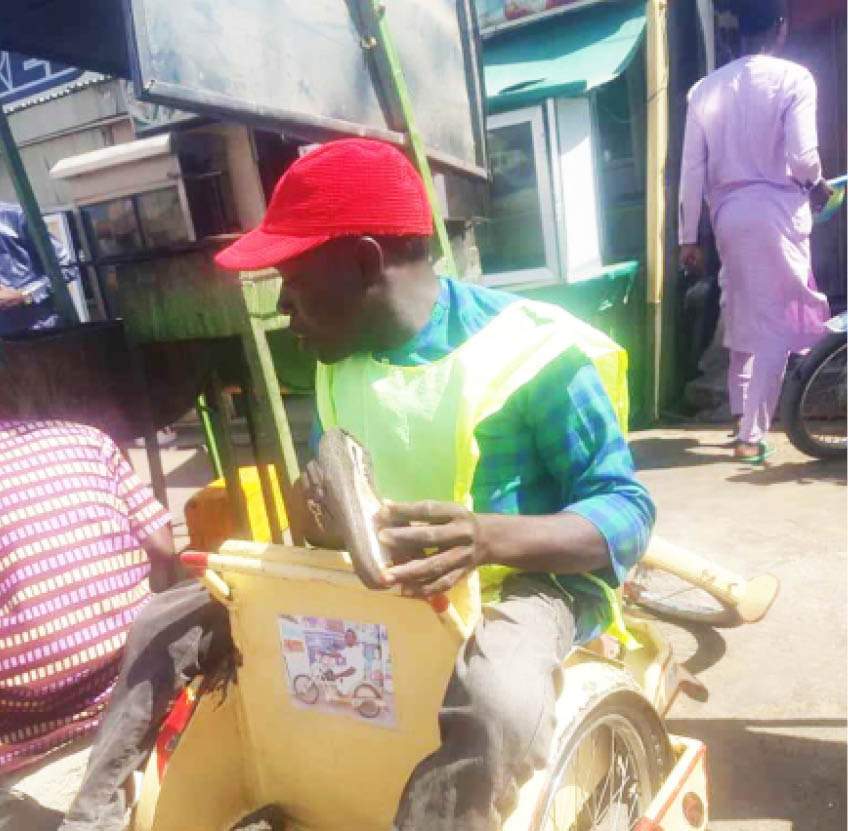Muhammad Sale, 27, is a physically challenged person who pulls out all the stops, put himself together and changed from a street beggar to an employer of labour as a result of the government’s policy banning street begging in Kano State.
Street begging is a social challenge and a menace that is rampant in Northern Nigeria. Beggars, mostly physically challenged persons and children, roam the streets of the densely populated Kano city though the ban is still in place. Some poor individuals without any physical challenge also resort to begging to sustain their families.
However, despite the fact that many beggars defied the government’s order, Sale decided to take the bitter with the sweet by making a big effort to start a business.
For anyone visiting the popular Sha’aban Restaurant along Zoo Road in Kano metropolis, Sale, sitting on his wheelchair with a radiant smile at the entrance of the eatery, can be seen repairing shoes and selling recharge cards.
Though Sale did not find the business easy at first, commitment and doggedness helped him to acquire a lot of expertise in the trade.
He said he was ‘forced’ into the business during the administration of Senator Rabi’u Musa Kwankwaso, noting that the ban and arrest of street beggars then was what led him to abandon begging and become a business owner and an employer.
With the little he is earning, Sale was able to save resources and married his heartthrob.
“I cannot even go near begging again and I am praying for other physically challenged persons to get something doing and stop begging.
“That time I was coming to this same place as a beggar I got a lot. But suddenly Kwankwaso stopped the act and I was forced to stay at home doing nothing. After some days, I could not resist and just decided to start doing this job. The little capital I had then could not afford to buy the whole material needed but with endurance today, I have enough material. Every day I make a minimum of N1500.
“I have friends who depend on begging now. I also know places where if I go I will get money without doing anything, but I cannot do that anymore. I am even shy for people that know me to see me in the act again.”
Sale has one young boy working with him. He said the boy does errands around for him including buying material, collecting and dropping shoes for customers coming to the restaurant.
He said his boy, who is physically fit, goes round the restaurant and beyond for his errands, adding that “If I get the opportunity to add another boy I will think of getting a physically challenged person.”
Sale said most physically challenged persons were forced into begging as they experience extreme dislike. He said many times people used to harass them and don’t want to go near them.
He appealed to the government and the wealthy individuals to embrace the habit of empowering physically challenged persons to start small businesses, saying that would address the menace of begging in the society.

 Join Daily Trust WhatsApp Community For Quick Access To News and Happenings Around You.
Join Daily Trust WhatsApp Community For Quick Access To News and Happenings Around You.


